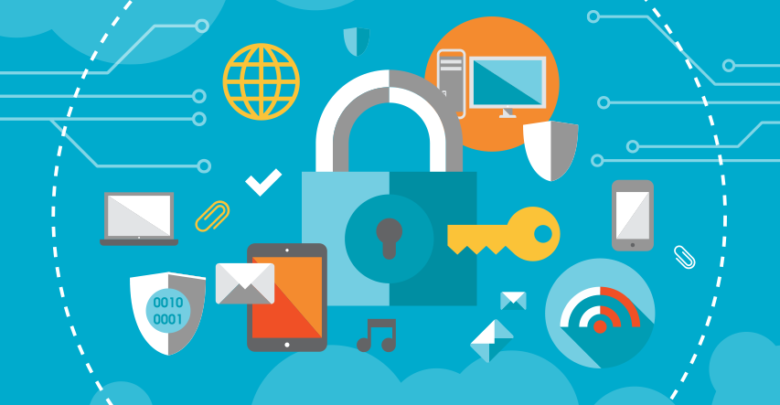Most Important Cyber Security Tips for Your Users

Cybersecurity has become just as important as physical security. As the authorities and online businesses confront the ever-increasing threat of savvy cybercriminals, we felt it’s important to share the best cybersecurity tips that can be implemented by just about any online user and pretty much immediately. Know More about our IT security services.
1. Become aware of your attractiveness
Before we’re able to protect ourselves against danger we need to accept our vulnerability to it. Many online users wrongly assume that hackers don’t perceive them as attractive targets. That these bad boys of cyberspace will pass them over as they scan for Johnny Depp’s credit card information.
Unfortunately for most of us, the exact opposite is true. Most hackers are small-time thieves, looking for equally small fish whose identity and information would not be perceived as equally important as that of a large corporation, celebrity or public institution by the authorities.
If credit card info, name, address, phone number, login credentials, and other sensitive information is stolen, this can cause as much mayhem in a regular person or a small organization’s life as it can to a supposedly more attractive target. Therefore, a change in attitude in regards to cyber threats is the prerequisite to implementing and staying true to practical security methods from this list.
2. Only make purchases on secure websites
See that little lock next to the URL of the website? That symbol signifies that the data shared on the website is encrypted. In other words, the payments made through the website are safe, since a third party can’t access the credit card info being used.
If a website doesn’t have that lock (or it has http instead of https), it’s not secure, and you should be cautious about sharing any sensitive information. Furthermore, it’s advised not to save your payment information.
Sure, writing the credit card or debit card number time and time again can be time-consuming. But breaches can happen and do happen even on the most secure websites. If your information isn’t saved on the website, you’re pretty much safe even if it happens.
3. Avoid email phishing scams
Emails provide a direct link from hackers to potential victims. There have been many scams, from the infamous “Nigerian Prince” to links that send the recipient on a phishing website that imitates a trusted company or institution.
In the latter case, a phishing website could, for example, pretend to be Facebook or Instagram. The unsuspecting user enters login credentials and the hacker swoops them up, breaks into their real accounts and creates a mess. While reading emails is not really dangerous, clicking on any links can be.
If you’re not sure if an email you’ve received is legit or a scam, you can identify the email sender with software like Nuwber. This service allows its users to track a person based on one or more pieces of information such as a name, physical address, email address, phone number and more.
To avoid phishing scams in general, it’s always a good idea to check out the background of the person you’re sharing sensitive information with, through Nuwber or a similar service.
4. Protect your devices from physical hacking
Hackers don’t discriminate between software and hardware, their only intention is to steal information. Your mobile phone, tablet, laptop or home computer are all potential vulnerabilities if they can be accessed without your authorization. To reduce the risks of that happening, create a log in password for these devices.
Carry these devices with you if possible instead of leaving them unmonitored. If you’re worried about a hacker accessing your desktop computer, use a portable hard drive to store sensitive documents. Use the incognito option on your Internet browser or regularly delete browsing history as well.
5. Increase social media profile privacy
The social media frenzy has lasted about two decades, from the days of Myspace to the currently popular platforms like Instagram, Facebook, Snapchat, and others. But people are starting to wake up to the dangers of sharing their lives online.
This information can be pieced together and used for identity theft purposes. It can also reveal to thieves when the person is away from home. Limiting social media profile visibility to the people you really trust is the easiest way to reduce these dangers.
Secondary ways involve reducing the amount of shared information, especially the current location, to prevent the before-mentioned risk of a home invasion.
6. Monitor your financial reports
Regular monitoring of financial transactions can prevent greater harm in case a hacking attempt falls through the cracks. Sometimes criminals use small transactions over a long period of time, relying on their victim not checking up on transactions at regular intervals.
This is even more important for businesses than individuals since business accounts deal are typically involved in more transactions. Doing some personal accounting or hiring a professional accountant are two ways to keep the books in check and stop hackers dead in their tracks even if they breach through your cyber defenses.
7. Use up-to-date anti malware software
Anti-malware software is crucial for preventing yourself against the latest cyber threats. We’ve included “up-to-date” in the title of this seventh tip on purpose. The real value of cybersecurity tools is identifying the latest threats. For this reason, it’s important to allow for regular updates, even though they can be annoying at times.
Final Word
Cybersecurity is a growing industry, as more businesses online equates to more criminals that are attracted to the potential bounty.
Individuals and small businesses are just as vulnerable to security threats as large corporations and government institutions. In some ways even more so, as they often lack the resources to hire top security experts or even premium security software.
For that reason, the seven tips outlined in this article are free and easy to implement by regular users, a category that most of us are a part of.




